Dr John Mayer: Children's heart surgery on all-island basis 'would work'
- Published
Dr John Mayer was asked by the Department of Health in Northern Ireland to review existing services
A leading international surgeon who has advised on the future of children's heart surgery in Northern Ireland has said there is a real willingness to make an "all-island" solution work.
In 2013, Dr John Mayer, was asked by the Department of Health in Northern Ireland to review existing services.
He looked at those in Northern Ireland and the Republic of Ireland.
His conclusion and recommendations will have major ramifications for the NI health service.
"I believe that the provision of paediatric cardiac surgery and paediatric interventional cardiology services in Belfast should cease and instead, surgical care of all children should be transferred to Our Lady's Children's Hospital, Crumlin, Dublin," he said.
In an exclusive interview with the BBC, the professor of surgery at Harvard Medical School said what was required was not difficult and should be achievable in a relatively short space of time.
"We didn't see too many difficulties in trying to implement this model," he said.
"North and south complement each other. Their individual services and strengths overlap. They can assist each other but, in doing so, can create an all-island cardiac network service."
Dr Mayer also said that politics should be kept out of the decision-making process.
"The care of children with congenital heart disease is not in my view a partisan issue; it is not a political issue.
"I would anticipate almost everyone is going to be in favour of wanting to do what's best for the children and as long as that's the case, I think the politicians might even be able to agree."
The BBC travelled to Boston Children's Hospital where the professor and his team of specialists care for critically ill children, some of whom make the journey from across the world.
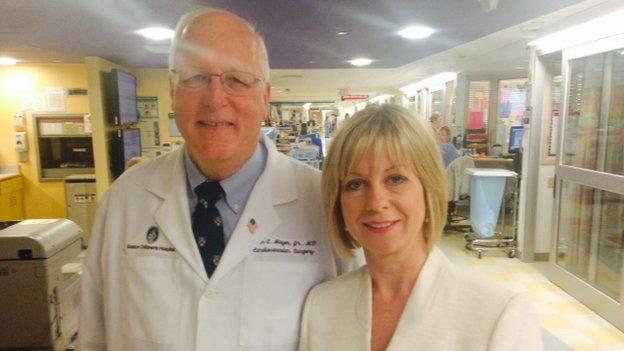
Dr John Mayer with BBC NI health correspondent Marie-Louise Connolly
The team was also keen to demonstrate that their staff, including nurses, surgeons and anaesthetists, are required to travel between hospitals within and out of state in order to share their skills to help critically ill children.
Dr Mayer said that it was now impossible for such highly-skilled clinicians to stay in just one location.
He said their counterparts in Ireland must be prepared to travel between the Royal Victoria Hospital in Belfast and Our Lady's Children's Hospital in Dublin.
Dr Mayer, who spent a week in Ireland earlier this year, said that compared to distances travelled by families and medical staff in America, travel in Ireland should not be a hurdle.
"I think transport is a concern for both jurisdictions because, at one end, you have Donegal and, at the other end, Cork city - which is three hours from Dublin.
"So that the ability to transport a patient from Donegal is probably not very different from transporting a child from Cork. But the roads are there."
A national review of children's cardiac services in Ireland began in 2011.
It found that although the service for children in Belfast was safe, it was not sustainable. It could mean that children would have to travel to England for treatment.
Discussions began between the then health minister at Stormont, Edwin Poots, and his counterpart in the Republic of Ireland, James Reilly, to provide children's heart surgery on an all-Ireland basis.
At the same time, more than 50,000 people signed a petition calling for the retention of that surgery in Belfast.
Discussions, debate, consultations and reviews have continued.
The Mayer report is now the fourth published review that recommends that children's heart surgery cannot be sustained at the Royal Victoria Hospital and should be carried out elsewhere.
The Mayer model would see Dublin becoming the centre within Ireland for children's cardiac surgery. Belfast would develop as a centre for diagnostics and cardio interventions.
As the population grows each will depend on the other to supply a service and, importantly, staff.
Dr Mayer said: "The working group concluded that, in the existing two separate paediatric cardiac systems in the north and the south, there were significant strengths and weaknesses, but these individual jurisdictions' strengths and weaknesses are complementary and non-overlapping.
"In fact, neither system meets all of the needs of the congenital heart disease patient population in its own jurisdiction. This is why both need to work together. "
The vision would mean refocusing the Belfast centre on elective, less complex adult work.
Clinical teams of specialist nurses, anaesthetists and cardiologists from Northern Ireland would be asked to travel to the Republic of Ireland.
While it would not be one-way traffic, Dr Mayer acknowledged that medical teams in Northern Ireland would be travelling more than their counterparts in the Republic of Ireland.
"The improved paediatric and neonatal transport and telemedicine infrastructure within the proposed cardiac clinical managed network with Belfast will have positive knock-on effects for children throughout both jurisdictions in Ireland," he said.
"The north offers excellent diagnostic facilities."
'Quiet acceptance'
While parents of sick children campaigned tirelessly for surgery to remain in Northern Ireland, over the past 18 months there has been a quiet acceptance that Dublin could also work.
The other option of England is not considered attractive or workable. This is a view shared by Dr Mayer.
Dr Mayer said an "all Ireland model" was cost effective. He also said it sent out a huge statement that Ireland was "open for business".
"The health ministers north and south should endorse this report. They need to work together and make sure the resources that are necessary are made available," he said.
"Ireland will be put on the map. Ireland has a role to play and this ensures they will become a bigger centre with more experience and will continue to grow. "
- Published23 September 2014
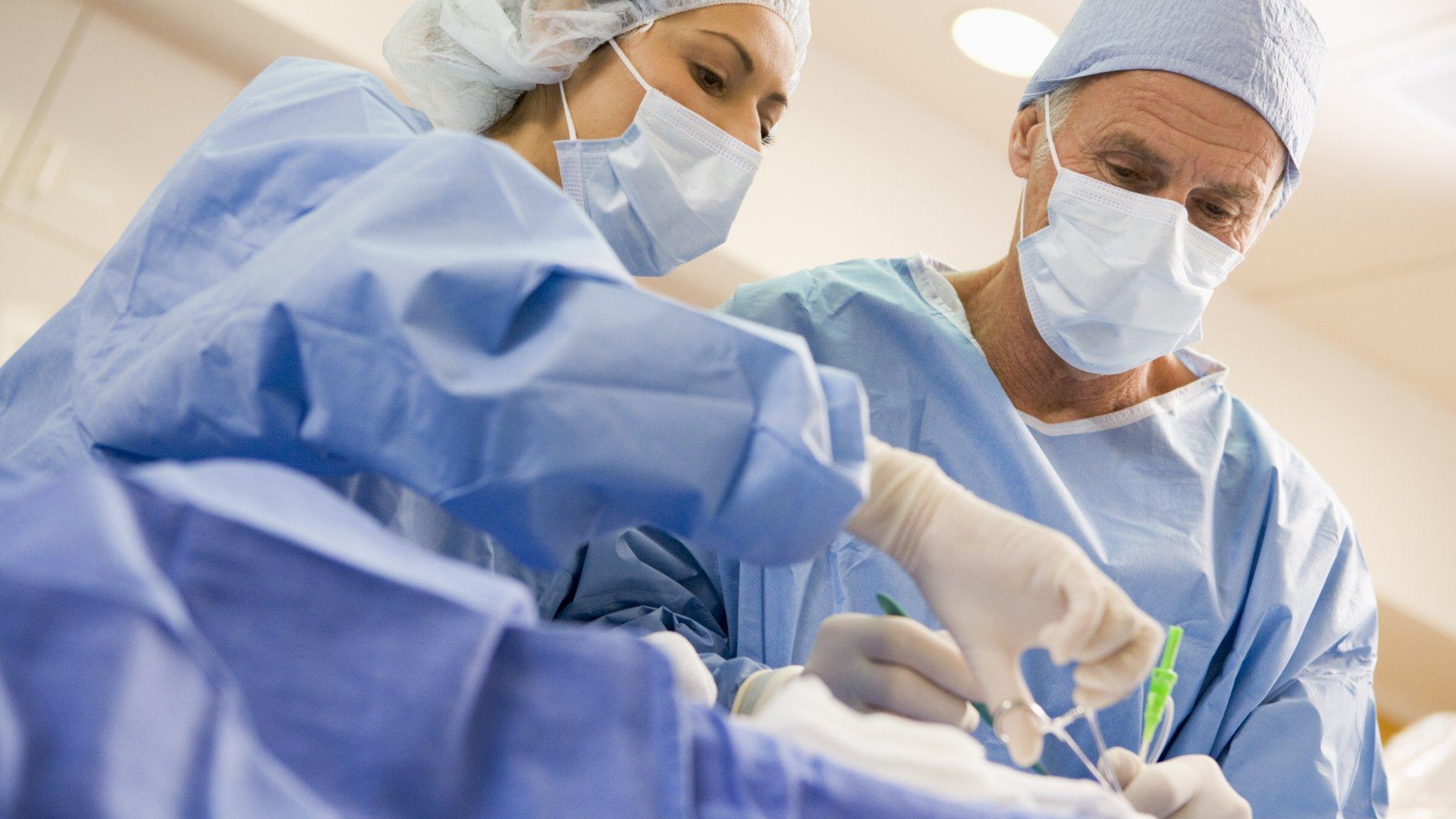
- Published30 April 2014
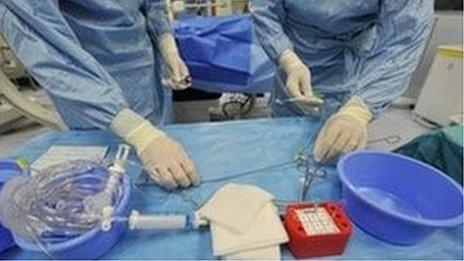
- Published24 February 2014

- Published9 December 2013

- Published3 December 2013
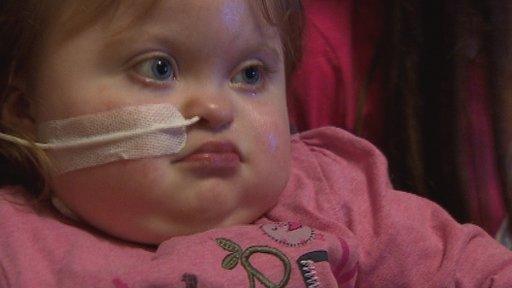
- Published18 November 2013

- Published12 June 2013
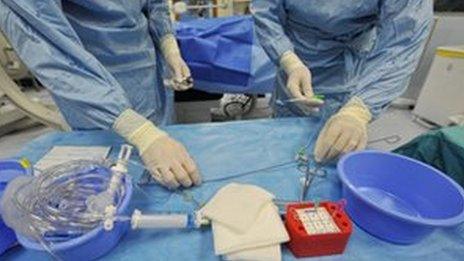
- Published25 April 2013
